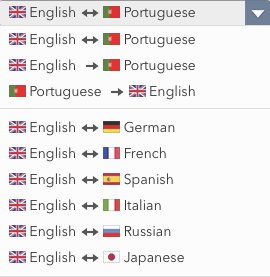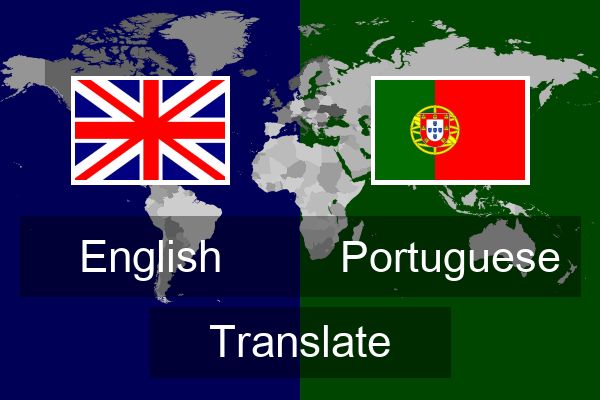Easy Communication with English To Portuguese Translation Specialists
Easy Communication with English To Portuguese Translation Specialists
Blog Article
Leading Tips for Perfect English to Portuguese Translation Solutions
Achieving extraordinary English to Portuguese translation calls for even more than plain word-for-word conversion; it demands an understanding of cultural subtleties and etymological details. Picking certified translators that are both culturally aware and proficient is extremely important. Just as important is the practice of localization, which involves tailoring material to regional variations. Additionally, utilizing contextual referrals makes certain that the initial tone and meaning are protected. The trip does not finish there; an extensive evaluation and modifying procedure is necessary. What other vital elements should be thought about to elevate translation high quality even more?
Understand Cultural Nuances
When equating from English to Portuguese, comprehending the cultural subtleties is vital for generating a powerful and precise message. The Portuguese-speaking world is varied, encompassing numerous regions, each with its distinct custom-mades, idioms, and social standards. A translator must be attuned to these nuances to make sure that the translation not only shares the intended message yet also resonates with the target market.
As an example, colloquial expressions in English may not have direct equivalents in Portuguese. A phrase that functions well in one culture might bring about confusion or misinterpretation in another. Comprehending local dialects and variations, such as those located in Brazil and Portugal, is essential; words may hold various undertones or usages depending upon the place.
Additionally, cultural context plays a significant role in translation. Inevitably, a thorough understanding of cultural nuances is crucial for providing translations that are not just linguistically precise however likewise culturally appropriate and engaging.
Choose Qualified Translators
Selecting certified translators is a crucial step in making sure the precision and top quality of English to Portuguese translations. A translator's knowledge not only encompasses language proficiency however likewise a deep understanding of cultural context, idiomatic expressions, and industry-specific terminology. When picking a translator, focus on those with official training in translation researches or grammars, in addition to appropriate certifications that demonstrate their specialist competence.
Experience plays a pivotal role too; translators focusing on particular fields-- such as lawful, clinical, or technical-- are most likely to provide precise translations tailored to the industry's standards (English To Portuguese Translation). In addition, consider their portfolio and client endorsements to examine their previous job quality and integrity
Engage translators who are indigenous Portuguese speakers, as they possess a natural understanding of the language's subtleties and regional languages. This familiarity boosts the translation's authenticity and performance.
Usage Contextual References

When equating, it is necessary to identify idiomatic expressions and cultural referrals that may not have direct matchings in Portuguese. Specific expressions that reverberate in English may call for adaptation to convey the exact same psychological weight or social relevance in Portuguese. Utilizing contextual referrals can aid translators choose the best terms and style, thus improving the total quality and impact of the translation.

Concentrate On Localization
Localization plays a critical duty in the translation procedure from English to Portuguese, as it makes sure that the equated material is culturally suitable and appropriate to the target audience. English To Portuguese Translation. This procedure surpasses simple translation; it involves adjusting the web content to the social, social, and etymological nuances specific to Portuguese-speaking areas
Comprehending local idioms, customs, and choices is crucial. Specific phrases or references that reverberate with an English-speaking audience might not have the exact same influence on Portuguese audio speakers. It is vital to think about local variations, such as Brazilian Portuguese versus European Portuguese, as each has distinct vocabulary and stylistic distinctions.
Furthermore, localization includes formatting, such as day and time layouts, money, and measurement devices, which can differ dramatically across cultures. This attention to information cultivates a connection with the audience, boosting engagement and comprehension.
In addition, employing neighborhood dialects and jargon can supply credibility, making the content a lot more relatable. By concentrating on localization in English to Portuguese translation, companies can properly communicate their message, develop depend on with their target market, and inevitably achieve their designated purposes.
Testimonial and Edit Thoroughly
Complete testimonial and editing and enhancing are vital steps in the translation process, specifically when transforming English web content right into Portuguese. This stage ensures that the translated material not only maintains the initial significance yet additionally reverberates well with the target market. Offered the etymological and social subtleties, a careful strategy to assess and editing is essential.
Begin by contrasting the initial English message with the Portuguese translation, paying very close attention to tone, context, and terminology. It's vital to make sure that social recommendations and idiomatic expressions are properly adapted for the Portuguese target market. Involving a 2nd translator or an indigenous speaker for this review process can give invaluable insights and capture mistakes that may have been neglected.
Additionally, look for grammatic accuracy and try this site stylistic consistency throughout the document. Usual difficulties such as uncertain phrases or incorrect cognates must be dealt with to avoid misinterpretation.
Verdict
Accomplishing outstanding English to Portuguese translation solutions necessitates a thorough technique that incorporates understanding social subtleties, picking qualified translators, using contextual references, focusing on localization, and performing comprehensive reviews and edits. Each component plays a vital role in making certain that translations are not only exact but also reverberate with the target audience. By carrying out these strategies, companies can enhance the efficiency of their interaction and promote a much deeper connection with Portuguese-speaking target markets.
Achieving outstanding English to Portuguese translation requires more than plain word-for-word conversion; it requires an understanding of linguistic details and social nuances.Picking certified translators is a critical look at this site step in making certain the accuracy and high quality of English to Portuguese translations.Detailed review and modifying are additional reading essential steps in the translation process, especially when transforming English web content into Portuguese.Begin by comparing the original English message with the Portuguese translation, paying close focus to tone, context, and terminology.Accomplishing phenomenal English to Portuguese translation services necessitates an extensive approach that encompasses understanding cultural nuances, choosing qualified translators, using contextual recommendations, focusing on localization, and performing comprehensive evaluations and edits.
Report this page